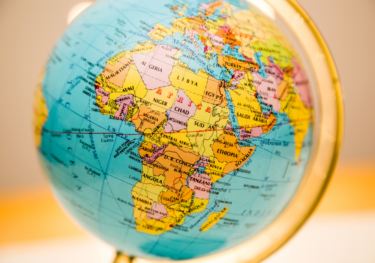Recent Release | 10 Mar 2023
Human Capital and Productive Employment Creation

Africa Consulting Team
Oxford Economics Africa

Mastering the appropriate skills will become increasingly important as the global economy evolves to a more sophisticated, interconnected and digital landscape. Africa currently underperforms on a number of human capital measures, and runs the risk of falling further behind if decisive and effective action is not taken.
When assessing the dynamics between skills demand and skills supply within an economy, a conundrum regarding causation emerges. Similar to the-chicken-or-the egg archetype, the demand for specific skills is both a product of the size of the sector requiring those skills, as well as a factor in determining the size of the aforementioned sector. The symbiotic relationship between a good supply of skills for a sector that is showing strong growth also has converse implications: the inability to find the necessary skills to develop a sector will hamper the development of that sector, thus reducing the demand for those skills.
This point – that the employment makeup of a country is determined by the structure of an economy and the availability of skills to support that structure – has important implications for economic development and competitiveness. Importantly, the best way to move to a new equilibrium where the demand for more sophisticated skills by firms matches the supply of those skills among workers will require investment in both human capital and infrastructure (both hard and soft, such as regulation), by both the public and private sectors. Investment in education and the modernisation of education provision need to be accompanied by incentives and the necessary infrastructure to get industries of the future off the ground and on a sustainable footing.
A more productive and educated labour force can act as a catalyst for economic sophistication, but the foundation for these sectors to develop needs to be in place for this virtuous chain reaction to be set off. As the Fourth Industrial Revolution (4IR) takes hold and spreads across the globe, all countries will have to adapt to a new economic reality. This new reality will take the form of fundamental changes to economic structures, and the emergence of new economic sectors at the expense of some traditional sectors. This will of course have a direct bearing on the demand for skills as modern sectors will require modern skills.
The experts behind the research
Our Africa Consulting team is made up of data modeling and policy experts that provide valuable qualitative and quantitative analysis. Our experience ranges from economic impact studies to bespoke market assessments, and we have an extensive international client base.

Jacques Nel
Head of Africa Macro
You might be interested in

Africa Watchlist 2025 – GDP booms, fiscal downfalls, and elections
Our Watchlist 2025 unpacks the likelihood of a South African economic boom and Kenya falling off a fiscal cliff. We also discuss political upheavals in Egypt and the Horn of Africa, and highlight a few more potential election surprises
Find Out More
The Green Leap: Dismayed battlelines drawn at COP29
The 29th Conference of the Parties (COP29) concluded with the announcement of a new core climate finance target to assist developing nations. Although a step in the right direction, this target for funding from wealthy nations to the developing world was slammed by many as insufficient to cover the substantial costs associated with climate mitigation and adaptation efforts in the developing world.
Find Out More
The future economic impact of South African Airways
Discover South African Airways' growing impact on South Africa's economy, with contributions to GDP, job creation, and government revenue projected to rise significantly by 2029/30.
Find Out More
Ghana: Election scenarios 2024
This Research Briefing presents two scenarios for Ghana’s December 7 general election, based on our assessment of the election manifestos of the New Patriotic Party (NPP) and the National Democratic Congress (NDC). We compare the macroeconomic forecasts associated with each scenario to explain the probable interplay between politics, policy, and macroeconomics in Ghana following the election
Find Out More